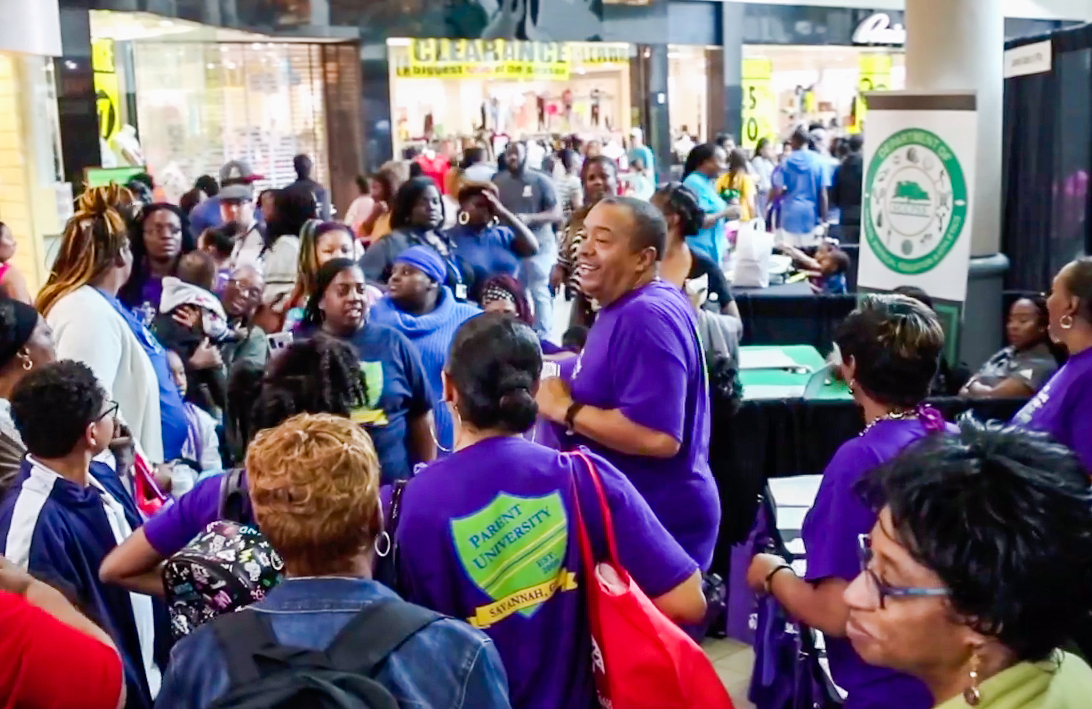
SAVANNAH, Estados Unidos — La Universidad para Padres, una organización estadounidense de inspiración bahá’í, se vale de su experiencia de varias décadas promoviendo la igualdad racial en Savannah (Georgia) para fomentar una mayor unidad social en un momento de creciente conciencia sobre los prejuicios raciales. La organización tiende puentes entre los miembros de la comunidad y los representantes del gobierno local, entre ellos el alcalde y el jefe de la policía, organizando espacios de debate constructivos en línea para examinar cuestiones de justicia e igualdad.
Michael O'Neal, director ejecutivo de la organización explica: «Los problemas a los que se enfrenta la comunidad pueden resolverse con una actitud de aprendizaje. La Universidad para Padres surgió hace más de veinte años en otro momento de tensión por las desigualdades raciales en el sistema educativo de Savannah como una forma de establecer una vía que conecte a los padres, a las autoridades municipales y escolares y a otros miembros de la comunidad en un entorno de aprendizaje en el que pudiéramos aplicar el principio de consulta bahá'í en lugar de la actitud de oposición que había llevado a un punto muerto». En esas reuniones se escuchan los puntos de vista de los diversos miembros de la comunidad a fin de llegar a un consenso sobre las acciones a emprender.
La Universidad para Padres dispone ahora de programas educativos que permiten a los padres y profesores consultar regularmente sobre los problemas que enfrenta su comunidad, con la participación recurrente de las direcciones de las escuelas y del gobierno municipal.

A los pocos días del estallido de los disturbios que se han producido a lo largo y ancho del país motivado por la violencia policial contra los ciudadanos afroamericanos, la organización invitó al jefe de policía de Savannah a un debate en línea con el público. El reconocimiento de que las preocupaciones de los miembros de la comunidad eran compartidas por las autoridades ayudó a crear la comprensión mutua necesaria para que se produjera un diálogo constructivo. «Estoy horrorizado y perturbado por lo que estoy viendo ―afirmó el jefe de policía Roy Minter―. Llevo este uniforme para trabajar, pero vivo cada día como un hombre afroamericano, así que nunca, nunca olvido de dónde vengo, nunca olvido por lo que he pasado...»
Las conversaciones posteriores han fortalecido un sentido de propósito compartido entre los diferentes segmentos de la sociedad hacia la mejora de los sistemas de seguridad pública.
En un debate reciente auspiciado por la Universidad para Padres, el alcalde Van Johnson dijo: «Sabemos que la crisis trae creatividad y oportunidad». Indicó que ahora se están creando oportunidades para que la toma de decisiones se realice contando con «personas que nunca antes habían participado en las discusiones».

El alcalde y el jefe de policía destacaron el papel determinante que desempeña la Universidad de Padres para hacer posible una estrecha colaboración entre los padres y las instituciones locales y entre diversos segmentos de la comunidad que de otro modo raramente interactuarían. «Es importante para nosotros responder a una convocatoria como esta y seguir utilizando numerosas vías para mejorar las relaciones, y también con los jóvenes de nuestras comunidades», declaró el jefe de policía Minter.
Mirando hacia el futuro, O’Neal habla de la transformación que se necesita en las relaciones entre los diferentes actores sociales. «Las actitudes de conflicto y oposición no son la forma de deshacernos del racismo. Debemos establecer relaciones colaborativas e inclusivas entre los individuos, comunidades e instituciones de la sociedad basadas en la consecución de la unidad de la humanidad».